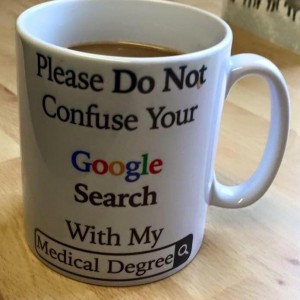
Patients now seem to have a more mature relationship with information. In my daily practice most seem to recognize that information can’t be equated with knowledge or wisdom. Parents seem to have a good sense of where information fits into our relationship.
I’ve found that the benefits of information access outweigh the time sometimes required to reconcile a what’s been learned. And there are times when the patient shows me new things.
The world has moved beyond the idea that patients have access to information. This is the way that 21st century patients learn and connect in a medically complicated world. I’ve yet to meet a patient who doesn’t respect my capacity to put their problems into the right context. I’ve yet to meet one who’s insight didn’t contribute to what we were looking to fix together.
Access to information represents one of the earliest and most powerful forces redefining doctors and patients. Other technologies are poised to shape us further. If as physicians we can’t position ourselves in this changing clinical space, we’ll continue to see ourselves as victims of the next new thing.
Check out E-patient Dave’s mug riff over at e-patients.net.